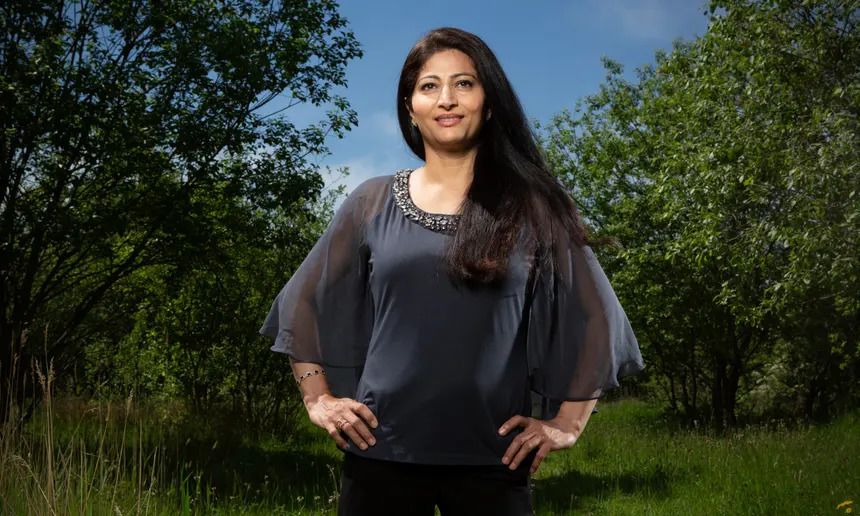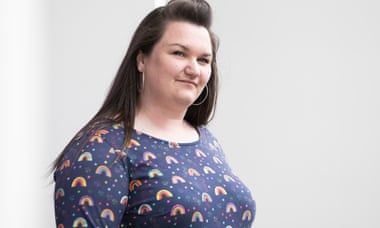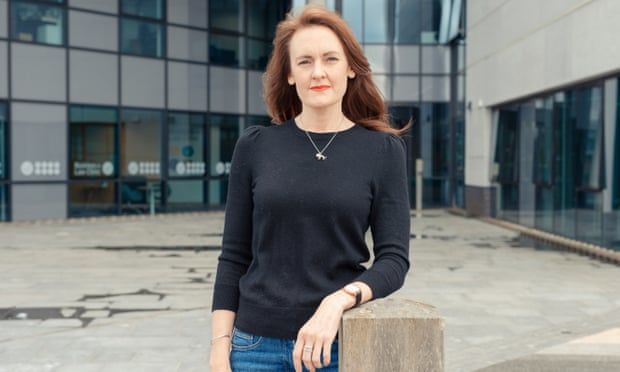
How to get a better class of MP? Help mothers stand for parliament
Sally Ashby’s earliest idea of what it means to be a politician involves feeling crushingly patronised. She was a teenager in south Wales when the local Conservative MP visited her school to discuss Welsh devolution. The young Ashby mustered the courage to ask a question about Welsh language and was, she says, witheringly told to ask something “sensible”. “I’ve always remembered that,” she says. “It was my first impression of what a politician was.”
But the 40-year-old single mother of three may yet end up having the last laugh; in May she secured one of the first 18 grants from MotheRED, the Labour MP Stella Creasy’s project encouraging more mothers to stand for parliament. After months of scandal, sleaze and complaints that politics is remote from ordinary lives, the aim is to shake things up a little.
The grants of up to £2,000 are designed to cover campaign childcare costs but also to signal that mothers – far from being patronised or parked on a back burner – are valued in politics.
For Ashby, who works part-time for a project helping mothers back into employment and has three daughters aged 11, eight and four, the money makes running for selection in her home town of Chepstow look suddenly feasible.
“I thought it would be something I’d only be able to start thinking about later in life, when the kids were older. This has allowed me to think this might be possible now,” she says.
“When you have kids, your perspective changes – there’s so much power in that and so much passion. But so many mums aren’t able to get back into work – the mothers I work with are often long-term unemployed and for many of them there are so many barriers. It feels like Westminster isn’t very representative of lots of mums I know.”
Meanwhile, her fellow grant recipient Nazia Rehman, a full-time Labour councillor from Wigan and mother of three, thinks the money also carries a more symbolic weight: “It sends a message that mothers can be ambitious. I think it will just start a wider debate in the community that you can bring up your kids, you can do all the caring duties and still aspire to follow your dreams.”
Some may wonder why any woman wants to join a parliament still mired in allegations of sexual misconduct. (Last week, the former Scottish National party chief whip Patrick Grady became the latest MP to face a brief suspension for making an unwanted sexual advance towards a staffer.)
Yet if anything, Creasy says, exasperation with grubby politics seems to be galvanising women into signing up: “They feel parliament is a place where privilege and entitlement has congregated and twisted, and it needs people who just don’t come from that background. And one group of people who are missing currently are mums.”
"Women with children do not run for office because of the costs and practicalities of trying to look after your kids and run a campaign"
The point of subsidising mothers, she added, is not to discriminate against child-free women but remove hurdles for an underrepresented group: “The evidence shows, time and time again, that women with children do not run for office, because of the costs and practicalities of trying to look after your kids and run a campaign.”
The unexpected bonus, however, is MotheRED seems to be attracting applicants who do not necessarily fit the standard Westminster model. A third were single mothers and a third BAME (Black, Asian and minority ethnic) women. Could relatively small subsidies be one answer to a parliament that, amid a cost of living crisis, has started to look dangerously out of touch?
 Nazia Rehman, a Labour councillor from Wigan and mother of three, was a recipient of one of the grants.
Nazia Rehman, a Labour councillor from Wigan and mother of three, was a recipient of one of the grants.
When the writer Isabel Hardman surveyed MPs for her book Why We Get the Wrong Politicians, she found that, on average, getting elected cost them £11,000 each from their own pockets, factoring in time taken off work to campaign, travelling, overnight stays and ad hoc expenses such as buying drinks to thank volunteers. But in marginal seats, some spent well into six figures. Losing candidates, meanwhile, can end up deep in debt with nothing to show for it.
Perhaps unsurprisingly, many of those prepared to take such a financial risk come from relatively wealthy backgrounds. While the 2019 “red wall” surge brought more Tory working-class MPs into parliament, 44% of Conservatives elected that year were still privately educated, alongside 38% of Liberal Democrats and 19% of Labour MPs.
Former cabinet minister Jacqui Smith, who sat on the panel judging MotheRED grants, says candidates are often embarrassed to admit they are struggling financially for fear of looking unprofessional. “Most people would look at someone who is a parliamentary candidate and see them as advantaged already. You don’t want to be saying: ‘I’m digging into my savings.’ Or: ‘I can’t afford to travel up three times a week.’”
 Grant recipient Samantha Townsend, a mother of
three from County Durham, says her interest in politics was sparked by
seeing cuts to family support services.
Grant recipient Samantha Townsend, a mother of
three from County Durham, says her interest in politics was sparked by
seeing cuts to family support services.
That resonates with Samantha Townsend, a 36-year-old mother of three from County Durham and another grant recipient. Just getting through the Labour candidate selection process could cost £1,000 and although she works three jobs – in community engagement for the Co-op, for a teaching company and as a city councillor – she does not have the money lying around.
“There’s no wealth in my family, there’s no credit card fund – I’ve used my credit card to keep my family fed over the last 10 years. I live in a rented house. I was thinking: ‘How am I going to do this?’”
Townsend’s two eldest children, now aged 10 and eight, are both autistic and her interest in politics was sparked by seeing cuts to family support services. She contends that Westminster needs more women like her with experience of the welfare system and fewer MPs arguing that poor people can cope with soaring bills by learning to cook better or buy value brands: “It feeds into the distrust people have for politicians, when they see Tories on the TV saying ridiculous things about what it’s like to live in poverty.”
It was frustration with a lack of diverse voices in government that led the former Lib Dem special adviser Vanessa Pine to co-found the Activate Collective two years ago, raising funds for female activists from all parties seeking national or local election, but focusing on low-income, minority ethnic and disabled women.
The 46 candidates it has so far supported needed everything from childcare to laptops and smart clothes, although the saddest story Pine heard was from a councillor who spent two hours walking home from evening meetings to save the bus fare: “She was potentially putting herself in a dangerous position walking home late at night because that £2.30 bus ticket was something she couldn’t afford.”
Perspectives such as this, Pine said, would be invaluable in local or national politics. “You get better policy when you’ve got people who know what they’re talking about. Things like the changes to the universal credit payments [scrapping the requirement to wait six weeks for a payment] would have happened much sooner if there had been anyone in the room who had ever had to wait for their benefits.”
 Sally Ashby from Chepstow says the grant will make the possibility of her running for parliament more feasible.
Sally Ashby from Chepstow says the grant will make the possibility of her running for parliament more feasible.
But, like Creasy, she points out that money is not the only hurdle facing mothers seeking election. “I’ve heard from women candidates who have been asked: ‘How will I cope if I get pregnant?’” she says. “Women are also often contesting much less winnable seats first and being asked to ‘prove’ themselves [before getting a safe seat].”
In Chepstow, Ashby admits she is braced for questions about how she would juggle her family responsibilities as a single mother. But winning the grant has made her more confident in answering, she says: “I think it’s important that I’m true to myself and my situation, and recognise that getting more people like me into parliament is a good thing. So many people are just disengaged at the moment with politics – the reaction is: ‘They’re all the same, I’m not going to vote for any of them.’
“There’s something about getting across the message that we’re not all the same; there are normal people who care enough to put themselves forward to stand because it matters to them – and because they want those normal voices to be heard.”










